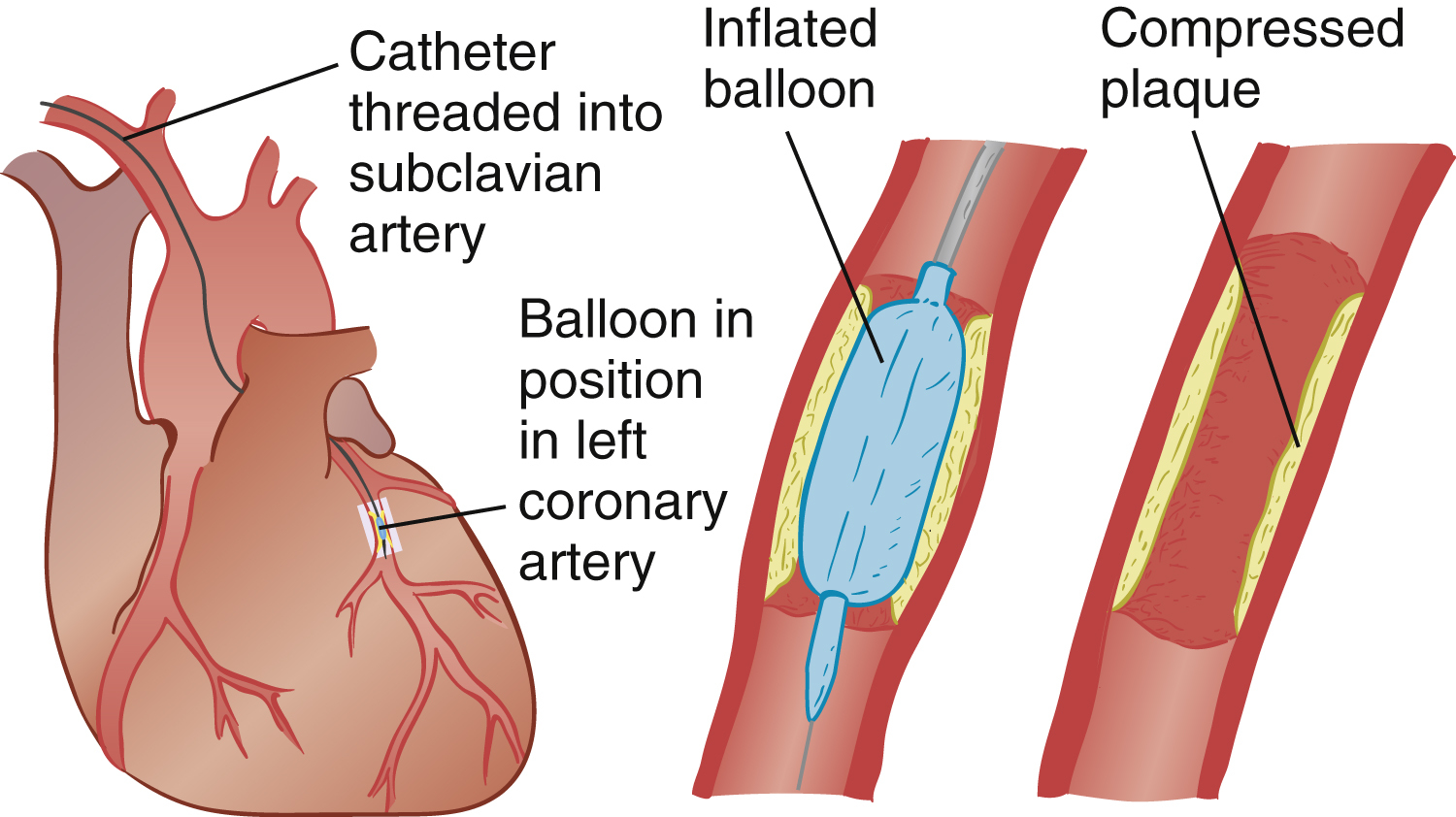percutaneous transluminal coronary angioplasty (PTCA), a technique in the treatment of atherosclerotic coronary heart disease and angina pectoris in which some plaques in the arteries of the heart are flattened against the arterial walls, resulting in improved circulation. The procedure involves threading a catheter through the vessel to the atherosclerotic plaque, inflating and deflating a small balloon at the tip of the catheter several times, and then removing the catheter. The procedure is performed under radiographic or ultrasonic visualization. When it is successful, the plaques remain compressed and the symptoms of heart disease, including the pain of angina, are decreased. The alternative to this treatment is coronary bypass surgery, which is more expensive and dangerous and requires longer hospitalization and rehabilitation.

